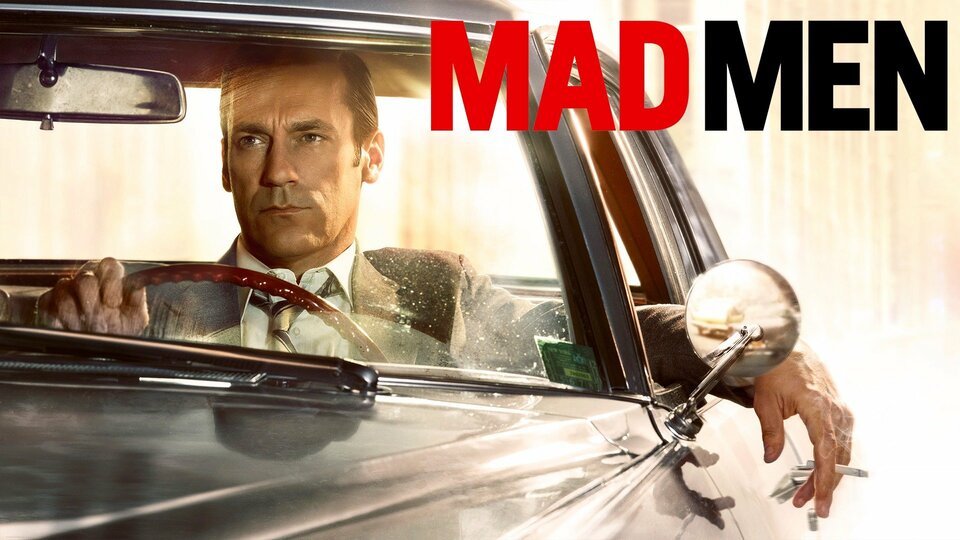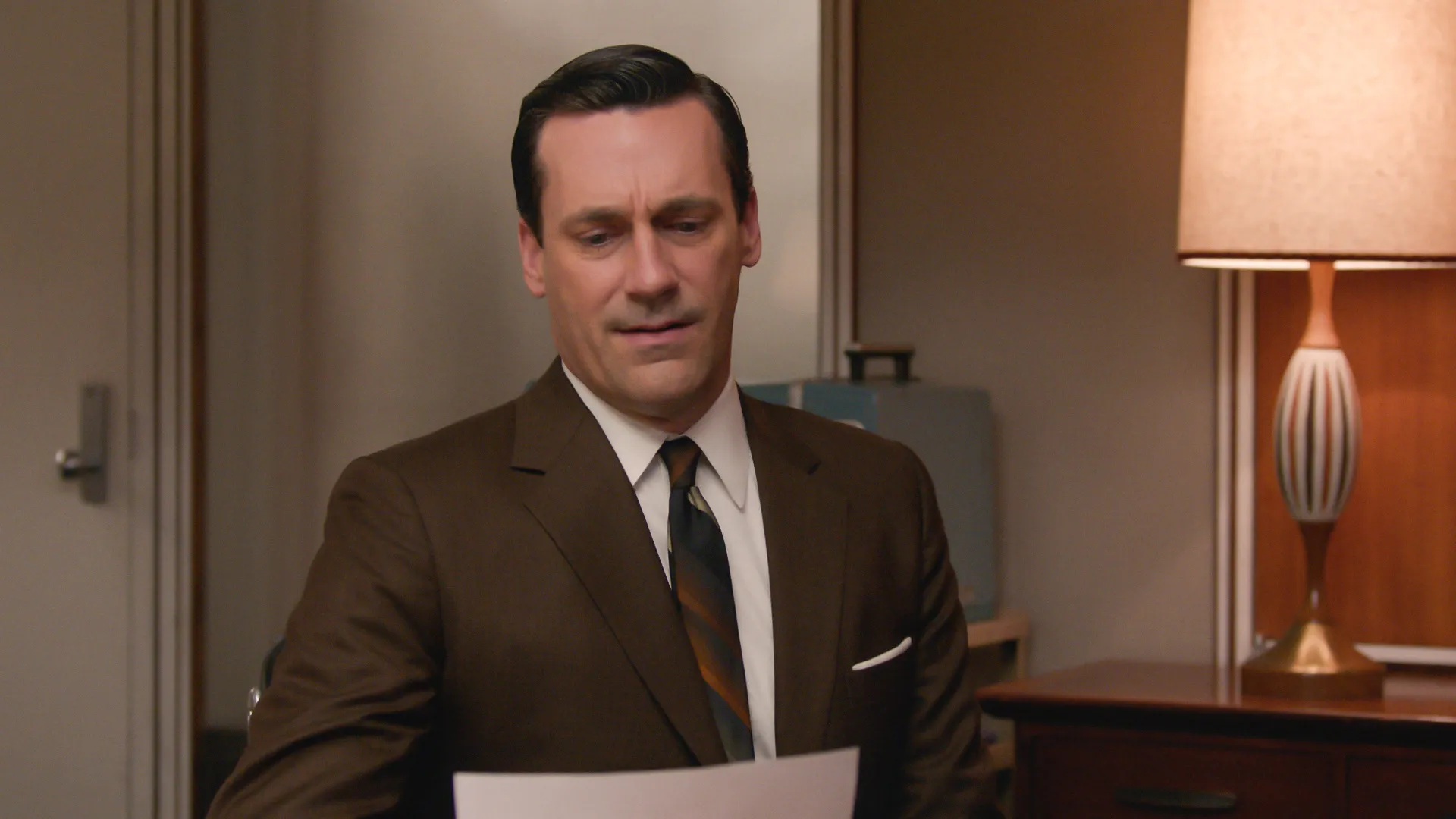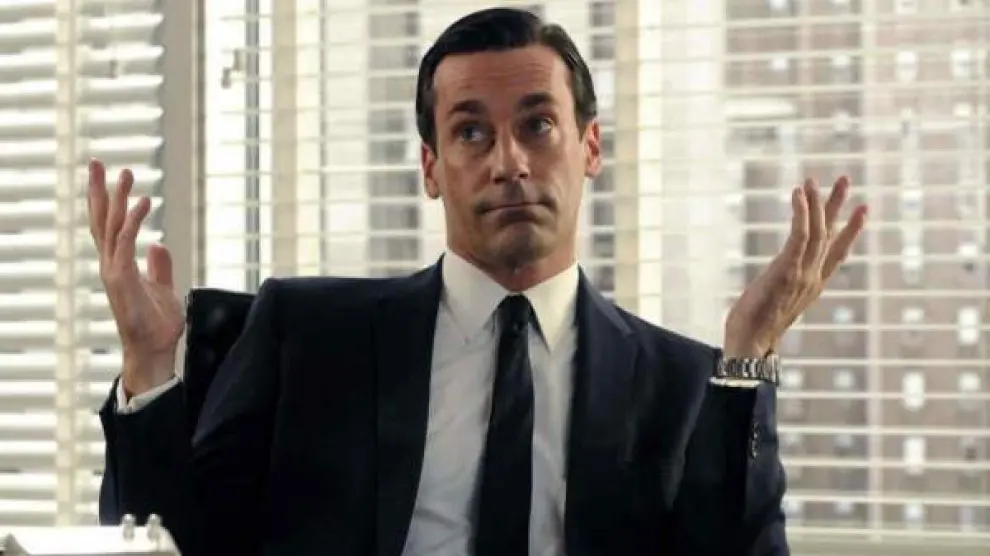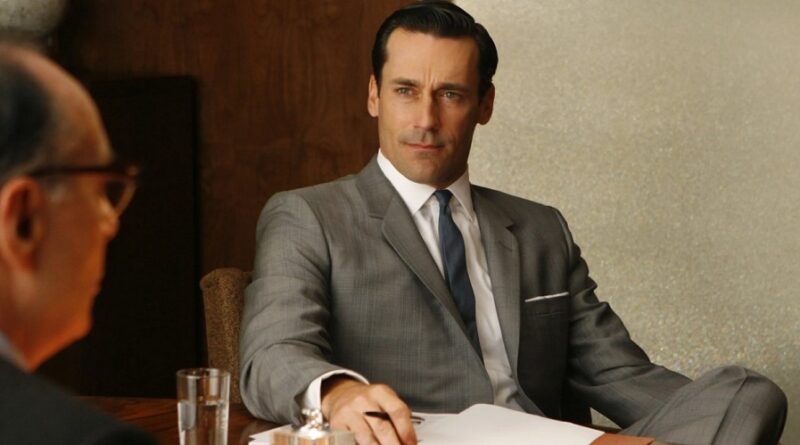Mad Men‘s conclusion remains one of television’s most talked-about endings. The series, which aired from 2007 to 2015, introduced audiences to the complex advertising in the 1960s. With its intricate portrayal of Don Draper (Jon Hamm), the finale raised questions about his character growth and whether he could ever achieve true inner peace.
In the final episode, “Person to Person,” Don embarks on a journey to a meditation retreat in California. This retreat marks his attempt to escape the painful consequences of his past. Throughout the series, Don struggled with his past identity as Dick Whitman. He sought solace in alcohol and relationships but never achieved lasting happiness. The finale raises the question of whether this retreat will bring him the peace he’s been desperately seeking.
The episode doesn’t just focus on Don’s journey. It also offers a sense of closure for other key characters. Peggy Olson remains at McCann Erickson, and in a touching moment, she and Stan confess their love for each other, beginning a new chapter in their relationship. Joan Hollaway starts her own production company while juggling motherhood and a career. Roger Sterling enjoys a fulfilling marriage with Marie, enjoying his wealth and their shared love of drinking. Betty Draper, however, faces a tragic end, as she battles cancer, choosing to die on her own terms.
Mad Men Ending Explained

Throughout this emotional rollercoaster, Don has key interactions with Betty and Peggy, offering closure to those relationships. His retreat, however, is where the emotional heart of the finale lies. As he meditates, he experiences a profound shift, and the camera zooms in on his face as he smiles contentedly, signaling a moment of clarity. The sequence transitions to the iconic “Hilltop” Coca-Cola advertisement from 1971, leaving viewers with a powerful, yet ambiguous, conclusion.
The key to understanding Don’s character arc lies in examining his retreat and the transformation that seems to take place there. For years, Don ran away from his past, never fully confronting who he was. His emotional breakdown after hearing Leonard’s story about feeling overlooked is a pivotal moment. This moment of self-reflection indicates that Don may have experienced a significant emotional shift. It seems he is finally beginning to understand himself, which leads him toward meditation and the subsequent smile.
However, the transition to the Coca-Cola commercial introduces an intriguing twist. The ad, famously tied to the 1970s, symbolizes Don’s return to advertising and his ability to create something impactful. But it also questions whether he has truly changed or simply found a new outlet for his talents. The ad might be an expression of personal growth, or it might suggest Don has fallen back into the familiar patterns that defined his earlier life.
Did Don Draper Create The Coca-Cola Ad?
The episode’s final moments heavily imply that Don was involved in the creation of the “Hilltop” Coca-Cola ad. The imagery at the retreat bears striking similarities to the commercial, with the clothing, location, and people all resembling the ad’s iconic visuals. This connection strengthens the idea that Don, after his retreat, returned to work and conceived the idea for the ad.
Matthew Weiner, the creator of Mad Men, has alluded to this interpretation in interviews, suggesting that Don’s spiritual journey could have led to the creation of the famous ad. The connection is further reinforced by Don’s experience at the retreat, where Leonard’s story and Don’s emotional breakthrough play into the themes of unity and connection found in the Coca-Cola ad.
Although Weiner hints at this interpretation, the ending is still open to debate. The idea that Don’s spiritual awakening led to the creation of such a commercial might seem contradictory to his previous struggles with self-identity. Yet, it also offers a fitting conclusion to his journey, showing how Don’s personal growth could influence his work.

How Mad Men Gave Don The Perfect Ending
The finale of Mad Men offers an ending that resonates with the series’ broader themes of change and self-discovery. While the “Hilltop” ad is iconic for its connection to consumerism, it also represents the possibility of redemption. Don’s involvement in the ad could be seen as a symbol of his ability to finally connect with others on a meaningful level.
The show’s ending is open to interpretation, reflecting Don’s complexity. One could view his creation of the ad as cynical, as it capitalizes on the counter-culture movement for commercial gain. Alternatively, Don’s emotional breakthrough at the retreat could be viewed as a genuine transformation that leads him to create something truly meaningful. Either way, Mad Men presents Don’s evolution as an ambiguous yet fitting end to his long journey.
Will Mad Men Ever Continue?
Although Mad Men wrapped up its story with a definitive, yet open-ended, conclusion, many fans have wondered if there could be more to Don Draper’s story. Jon Hamm, who portrayed Don, has expressed mixed feelings about revisiting the character. While he acknowledges that the ending was satisfying, he leaves open the possibility of a future project, though he admits it’s not something that’s actively discussed.
There have been suggestions that a spinoff could explore the post-Mad Men world, potentially following other characters or continuing Don’s story in some way. However, Hamm and the rest of the cast seem content with how the series ended. While there’s certainly room for further exploration, Mad Men’s conclusion feels like a well-executed and thoughtful end to Don’s journey.

Where Mad Men’s Ending Ranks Compared to Other Great Finales
The ending of Mad Men stands out as one of the more ambitious conclusions in television history. While it may not have the same definitive closure as other famous finales, it offers something unique. The ending is open to interpretation, leaving fans to ponder whether Don’s journey toward enlightenment is truly complete or if he’s simply found a new path to his old self.
In comparison to other great finales, such as Breaking Bad and Six Feet Under, Mad Men’s conclusion is more elusive and ambiguous. While shows like Breaking Bad offer a sense of closure, Mad Men challenges its audience to think deeply about the complexities of its characters. This makes its ending both bold and fitting, reflecting the unpredictable and nuanced nature of Don Draper’s character.




